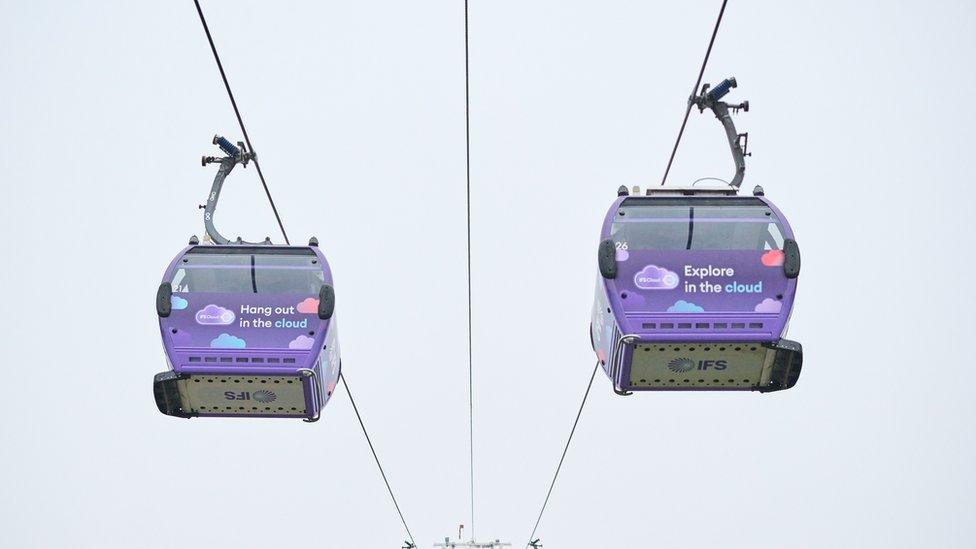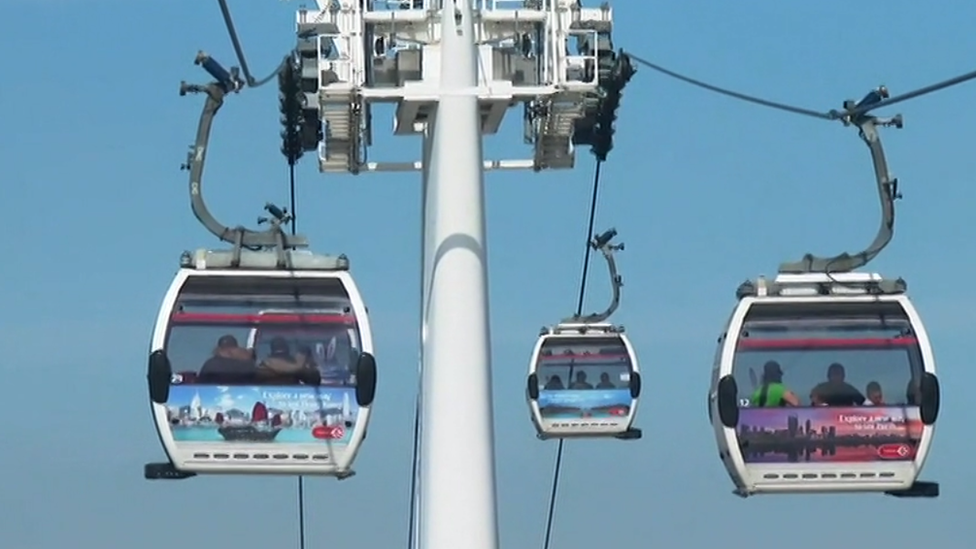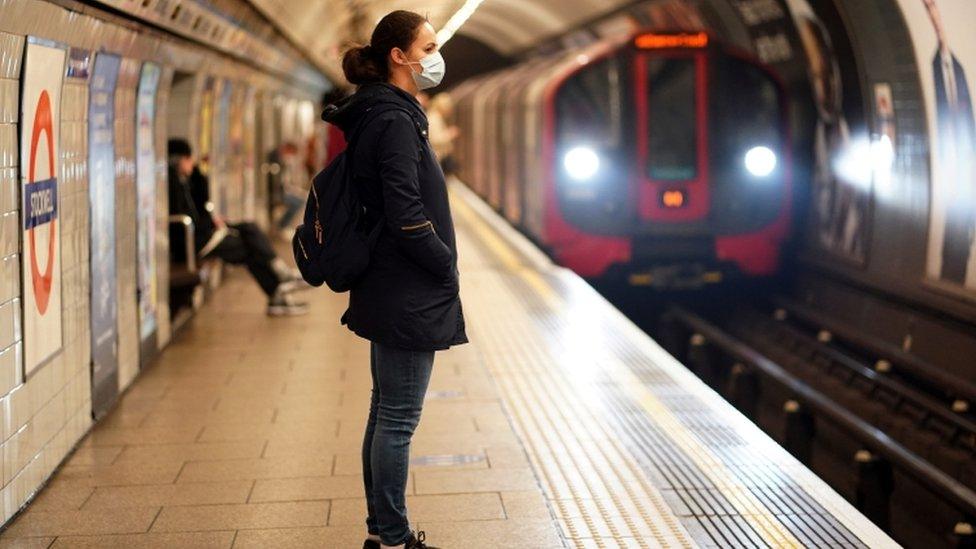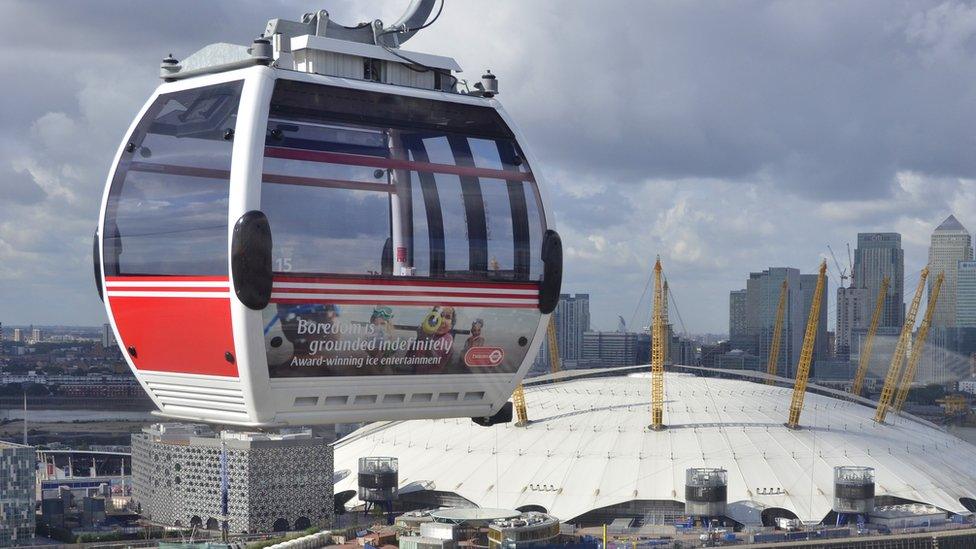London cable car: Social media helps boost passenger numbers - TfL
- Published

The cable car links North Greenwich and Custom House in east London
A rise in passenger numbers on London's cable car to the highest level since 2016 is partly down to social media, Transport for London (TfL) has said.
Opened in time for the 2012 Olympics, the cable car has struggled to attract regular commuters with passenger figures declining over the last decade.
But, new TfL data shows more than 1.5 million people used the east London crossing in the last financial year.
This was up by 200,000 compared to 2021/22.
TfL's Josh Crompton said the cable car has benefited from a "social media buzz".
"It's brilliant, numbers are really growing and the recovery from the pandemic has been fantastic," he said.
"A lot of it is down to how the customer sees us, during the pandemic we were quite popular. Social media really helped build up that popularity."
Mr Crompton explained during the pandemic TfL had to incorporate private cabins for people in order to help with social distancing measures.
He said TfL realised this allowed people, particularly on social media, to "express themselves".
'Must-do attraction'
Now, TfL has used occasions to turn the cabins into private experiences - including an afternoon tea ride to mark Mother's Day last week.
The aim is for the cable car to become a "must-do attraction" which is affordable.
"We have a whole card of events including Easter, Eid, an afternoon tea for the King's coronation, three-course meal evenings - these events help it grow," he explained.
"The cable car is a unique infrastructure for TfL. We have the flexibility to do more.
"Customers use it for leisure activity and we are able to adopt some things that other attractions do - and it's paying off."
Fares for an adult now cost £6 - up from £4.30 for peak travel and £3.20 for off-peak when the cable car first came into operation.

Follow BBC London on Facebook, external, Twitter , externaland Instagram, external. Send your story ideas to hellobbclondon@bbc.co.uk, external
Related topics
- Published29 June 2022

- Published21 April 2022

- Published27 October 2020

- Published1 September 2022
